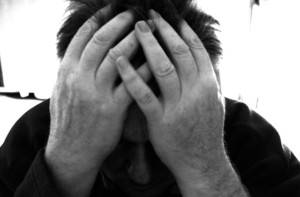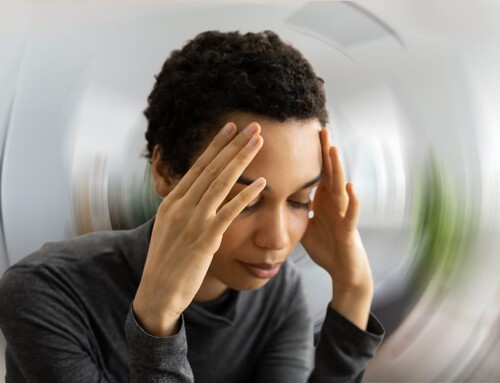Table of Contents
 Vertigo is the sensation of movement when there is none. Most people describe it as a feeling that the room is spinning. There are many triggers that can begin a vertigo attack. Sometimes we even bring them upon ourselves. Think about a child spinning out in the yard and then stumbling around for a bit. The vertigo was brought on by the spinning. To a kid, it’s fun. For an adult, a sudden attack of vertigo can be debilitating. What are some of the triggers of a vertigo attack and what can help you to minimize their occurrence?
Vertigo is the sensation of movement when there is none. Most people describe it as a feeling that the room is spinning. There are many triggers that can begin a vertigo attack. Sometimes we even bring them upon ourselves. Think about a child spinning out in the yard and then stumbling around for a bit. The vertigo was brought on by the spinning. To a kid, it’s fun. For an adult, a sudden attack of vertigo can be debilitating. What are some of the triggers of a vertigo attack and what can help you to minimize their occurrence?
To learn more about the connection between head and neck injuries and vertigo download our complimentary e-book How to Naturally Relieve Vertigo without Drugs by clicking the image below.

Vertigo Triggers
The underlying cause of vertigo is not known. However, we do understand what causes it to happen sometimes. Consider the following:
- Migraines –Vertigo may just be one symptom of a migraine. Some migraines may even cause vertigo but not include a headache.
- Motion Sickness – When a person gets off of a boat after several days at sea, perhaps for a cruise, it sometimes takes a day or two for the rocking sensation to go away.
- Medication Side Effects – Many medications can cause vertigo, especially when high doses are prescribed.
- Dehydration – You don’t have to get super dehydrated to end up dizzy. Even just a mild case of dehydration can cause lightheadedness.
- Meniere’s Disease – This is a rare vestibular condition that has vertigo as a primary symptom.
- Head Position – Sometimes simply turning the head the wrong way can bring on an attack. In fact, benign paroxysmal positional vertigo (BPPV) is the most common kind of vertigo.
This is by no means a comprehensive list of vertigo triggers. It’s meant to help you appreciate that vertigo is often a symptom of something else. Another example of an underlying cause of vertigo is an upper cervical subluxation.
Upper Cervical Care for Vertigo
If you are experiencing vertigo, especially if you have any kind of head or neck trauma in your history, a misalignment of the C1 vertebra (atlas) may be a contributing factor. By having the misalignment corrected, one may experience fewer or less severe vertigo attacks. They may even go away completely.
To schedule a consultation call 808-201-1324 or simply click the button below.
 If you are outside of the local area you can find an Upper Cervical Doctor near you at www.uppercervicalawareness.com.
If you are outside of the local area you can find an Upper Cervical Doctor near you at www.uppercervicalawareness.com.





